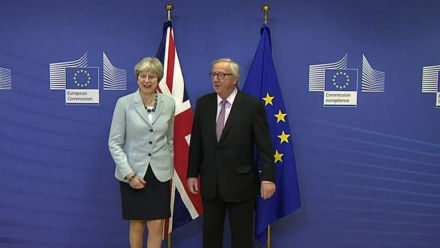
Jeremy Corbyn is clearly being torn apart by Brexit. The number of frontbenchers threatening to resign if he supports another referendum is probably matched by a similar number who will resign if he doesn’t. The only way out of this impasse is to recognise that attitudes towards the European Union are not the key determinant of voting behaviour, and to grasp the nettle.
For the past two years, we have been stuck with the notion that people vote solely along Remain/Leave lines. ‘Deviate from what your constituents voted for at your peril’ seems to be the message. This has paralysed politics. Labour MPs in Remain constituencies are desperate to push their EU credentials, while those with a majority of Leave voters are terrified of losing their support.
But hold on. Many MPs were actually elected in 2017 despite the fact that their views on the EU did not accord with those of their constituents. The fact that a majority of MPs are Remainers rather proves the point. We have been so distracted by the Brexit debate that we have almost forgotten there is another world out there. One where people care what is happening to them in a whole host of ways, from their jobs and their kids’ education to the service they get from their GP and their local council. Yet the political discourse in the media and in parliament is solely focussed on Brexit.
It is even worse than that. We do not hear much about the case for and against staying in the EU either. We hear about the practicalities of leaving, about the need or not for a second referendum, about the lies told by the Leave campaigners. Meanwhile, the real issues of belonging or not to the EU are barely discussed. We hear next to nothing, for example, about the fact that the effects of freedom of movement could be mitigated with ID cards. Instead, we have Project Fear matched by accusations of being undemocratic if you support the 48% rather than the 52.
We do not even know what Jeremy Corbyn really thinks about the EU. Yes, we all suspect that he is more comfortable about leaving than many of his supporters, but why? One argument that I have frequently been asked to comment on, for example, is the issue of whether staying in would stymie plans to renationalised the railways. As I have repeatedly said, the answer is clearly ‘no’ (see here). Nor do we really know what Theresa May thinks. Both seem to have forgotten that the referendum was advisory and that it took place nearly 1,000 days ago – during which time rather a lot, to contradict May, has changed.
The fact that we are still stuck in the Brexit straitjacket is nonsense and an insult to the electorate. People are still far more likely to vote on left/right dividing lines, or on other more nuanced issues such as education, health, crime and housing. We need to stop being paralysed by Brexit, and instead emphasise the differences between Labour and the other parties.
Of course, whatever way the party goes in the next few weeks will lose Labour some voters. It will also gain some. MPs have to take the initiative here. Those in Remain constituencies may, for example, have to start listening to some of their local Leavers. And those in Leave areas, who probably mostly personally voted Remain, have to be even more brave and make the case for staying in, if that is what they believe is best.
I write this as a Remainer but recognise that another referendum, though probably the least worse outcome, is not a panacea. That makes it even more important for MPs to listen and to be strong, to make the case for what they believe in, and not what they think their constituents want. As a wannabe politician, I want to join the fray to influence things, not simply follow the prevailing wind.




More from LabourList
Government abandons plans to delay 30 local elections in England
‘The cost of living crisis is still Britain’s defining political challenge’
‘Nurses are finally getting the recognition they deserve’